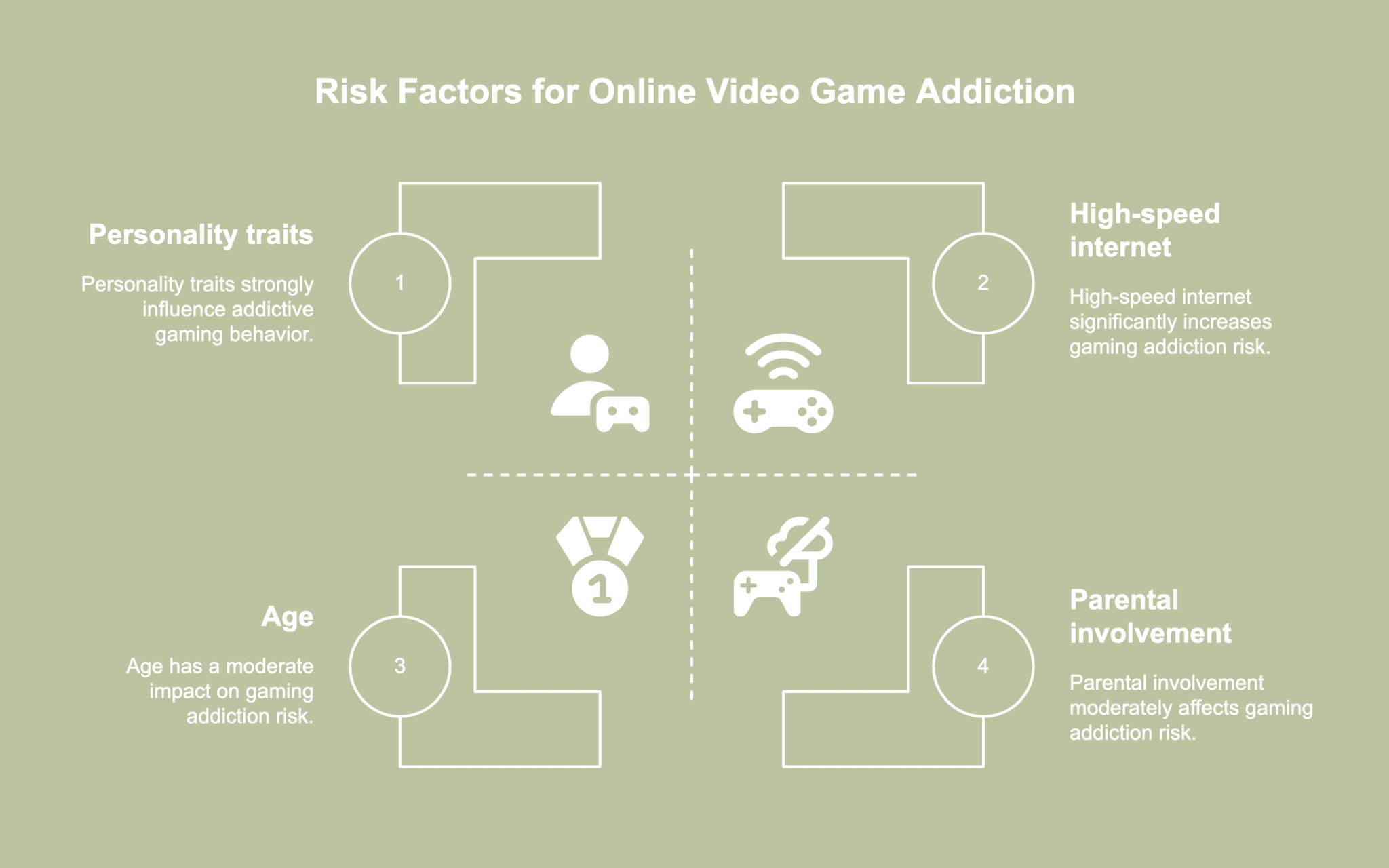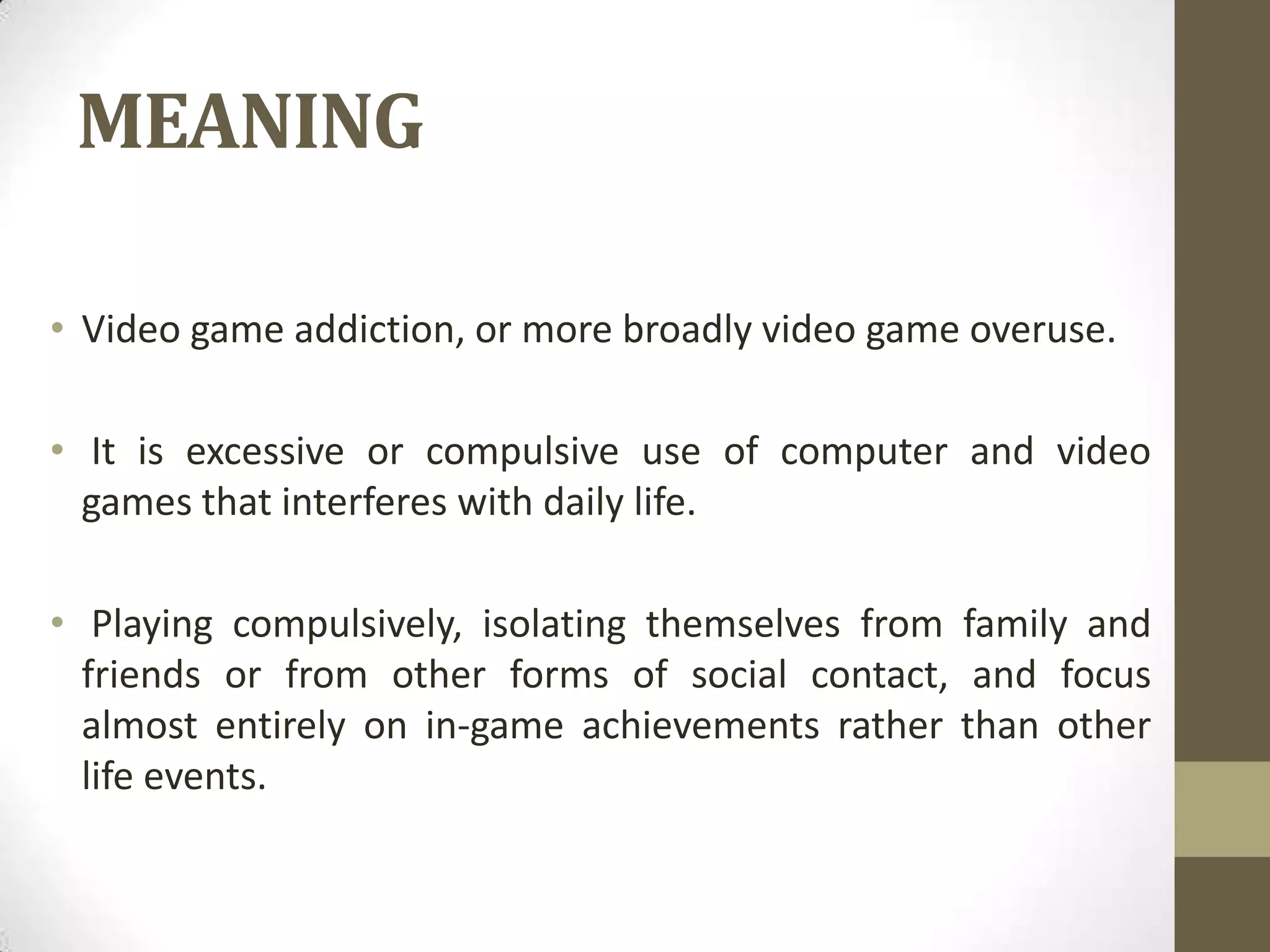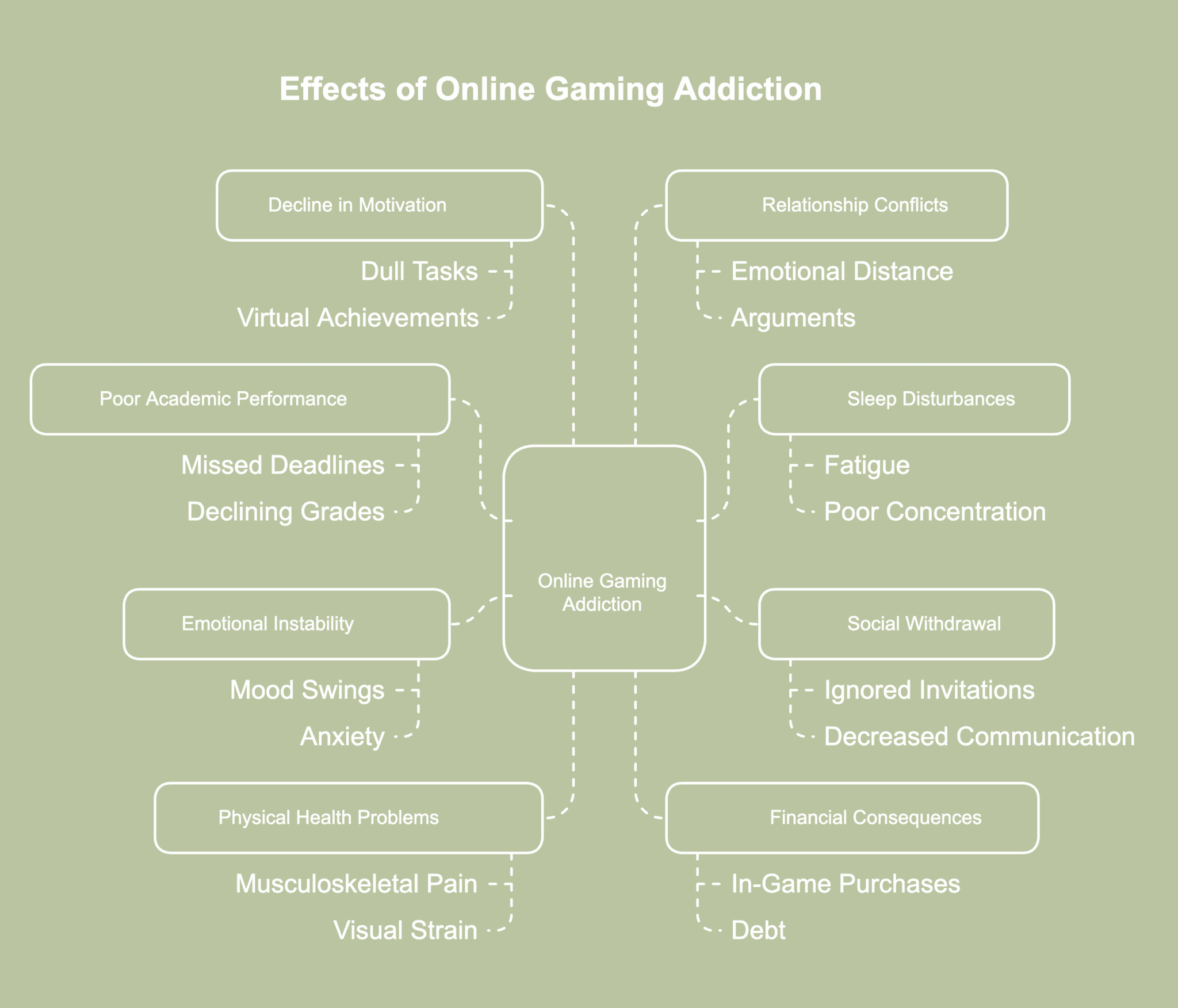Have you ever found yourself losing track of time while playing games? Maybe you’ve tried to stop, but the urge to keep going feels too strong.
This could be more than just a hobby—it might be gaming addiction. Understanding what gaming addiction really means can help you recognize if it’s affecting your life or someone you care about. Keep reading to discover the signs, why it happens, and what you can do to take back control.
Your gaming habits might surprise you.

Credit: diamondrehabthailand.com
Gaming Addiction Basics
Gaming addiction is a serious issue affecting many people worldwide. It means playing video games too much, to the point where it harms daily life. Understanding the basics helps recognize and address the problem early.
Gaming addiction can affect mental health, relationships, and work or school performance. It is important to know the signs and how the addiction starts.
Signs Of Addiction
People with gaming addiction spend many hours playing games every day. They often ignore family, friends, and important tasks. Feeling restless or upset when not playing is common. They may lie about gaming time or lose interest in other hobbies. Sleep problems and poor eating habits can also appear.
How Addiction Develops
Gaming addiction usually starts with fun and relaxation. Over time, the brain craves the excitement games bring. Players may use gaming to escape stress or problems. The more they play, the harder it is to stop. This cycle creates dependence, making gaming a priority over other life parts.
Psychological Effects
Gaming addiction affects the mind deeply. It changes how a person thinks and feels. These psychological effects can harm daily life. Understanding them helps recognize the problem early.
Impact On Mental Health
Gaming addiction can cause stress and anxiety. Players may feel restless or sad often. Sleep problems are common in addicted gamers. They might lose interest in other activities. Concentration and memory can also decline. This damages overall mental well-being.
Behavioral Changes
People with gaming addiction show clear behavior shifts. They may avoid social interactions and isolate themselves. Mood swings and irritability happen frequently. Some neglect work or school responsibilities. Gaming becomes the main focus of their day. These changes affect relationships and daily routines.
Physical Consequences
Gaming addiction does not only affect the mind. It also has serious physical effects. Spending too much time playing games can harm the body in many ways. These physical consequences can reduce the quality of life and cause health problems.
Health Risks
Sitting for long hours is common in gaming addiction. It can cause back pain and muscle stiffness. Eyes get tired and dry from staring at screens. Poor posture leads to neck and shoulder pain. Lack of movement increases the risk of obesity. Poor diet and skipping meals add to health problems. These risks build up and weaken the body over time.
Sleep Disruption
Many gamers play late into the night. This habit disrupts the natural sleep cycle. Blue light from screens confuses the brain. Falling asleep becomes difficult. Poor sleep affects energy and mood the next day. Long-term sleep problems can lead to serious health issues. Good sleep is needed for the body to heal and grow.
Social Impact
Gaming addiction affects more than just the player. It changes how people connect and live with others. The social impact can be serious and lasting. It often harms family ties and friendships. It can also lead to deep loneliness. Understanding these effects helps us see the bigger picture of gaming addiction.
Relationships Strain
Gaming addiction often causes stress in relationships. Players may spend hours gaming instead of talking to family. Friends might feel ignored or unimportant. Arguments can start over missed plans or broken promises. Trust breaks down when one person hides their gaming habits. Over time, this strain can damage or end close bonds.
Isolation Issues
Many addicted gamers withdraw from social life. They prefer virtual worlds over real human contact. This can lead to loneliness and sadness. Isolation makes it hard to share feelings or get support. Without social interaction, skills like communication weaken. The longer isolation lasts, the harder it is to reconnect with others.
Risk Factors
Gaming addiction does not affect everyone the same way. Certain factors make some people more likely to develop this problem. Understanding these risk factors helps in recognizing who might need support.
Age And Gender
Younger people, especially teens, have a higher risk of gaming addiction. Their brains are still developing, making them more vulnerable. Boys often play more video games than girls. This difference may increase addiction risk among boys. Still, girls can also develop gaming addiction.
Personality Traits
Some personality traits raise the chance of gaming addiction. People who feel lonely or shy may use games to escape. Those with low self-control might play too long. People who seek excitement often enjoy the challenge of games. These traits can make stopping difficult.
Prevention Strategies
Preventing gaming addiction is key to enjoying games safely. It helps keep control and balance in life. Simple steps can make a big difference. Start with clear rules and good habits. These stop gaming from taking over daily life.
Setting Boundaries
Set clear limits on gaming time. Use alarms or timers to stop playing. Avoid gaming right before bed to improve sleep. Take regular breaks during long sessions. Make sure gaming does not affect work or school. Keep gaming out of important family or social times. Boundaries help keep gaming fun and not a problem.
Healthy Gaming Habits
Choose games that do not cause stress or frustration. Play with friends or family for social fun. Balance gaming with other hobbies and outdoor activities. Keep a healthy diet and exercise regularly. Avoid playing games to escape real-life problems. Healthy habits reduce risks of addiction. They keep gaming a positive part of life.
Treatment Options
Treatment options for gaming addiction focus on helping individuals regain control. These options aim to reduce gaming time and improve daily life. Support and professional help play key roles in recovery. Treatment varies based on the person’s needs and the addiction severity.
Therapy Approaches
Therapy helps players understand their gaming habits. Cognitive-behavioral therapy (CBT) is common. It teaches how to change thoughts and actions about gaming. Therapists also work on managing stress and emotions. Family therapy can improve support at home. Some cases need medication for related issues like anxiety or depression. Therapy creates healthy habits and balance in life.
Support Groups
Support groups offer a safe place to share experiences. Members encourage each other to stay away from excessive gaming. Groups meet online or in person. They provide advice and understanding from people with similar struggles. Support groups reduce feelings of isolation. They help build new, positive relationships outside gaming.

Credit: www.slideshare.net

Credit: diamondrehabthailand.com
Frequently Asked Questions
What Is Gaming Addiction And How Is It Defined?
Gaming addiction is a compulsive need to play video games excessively. It disrupts daily life, causing emotional and social problems. This behavior often leads to neglecting responsibilities and relationships.
What Are Common Signs Of Gaming Addiction?
Signs include excessive gaming, irritability when not playing, neglecting work or school, and social withdrawal. Physical symptoms like fatigue and poor hygiene may also appear.
How Does Gaming Addiction Affect Mental Health?
Gaming addiction can cause anxiety, depression, and increased stress. It may reduce motivation and worsen social isolation, impacting overall emotional well-being.
Can Gaming Addiction Be Treated Effectively?
Yes, gaming addiction can be treated with therapy, counseling, and support groups. Developing healthy habits and setting limits on gaming time also help recovery.
Conclusion
Gaming addiction affects many people worldwide. It causes problems in daily life and health. Recognizing the signs helps to take action early. Balance between gaming and other activities is important. Support from family and friends makes a big difference. Seeking professional help can guide recovery steps.
Understanding gaming addiction helps protect yourself and others. Stay aware and keep gaming fun and healthy.









